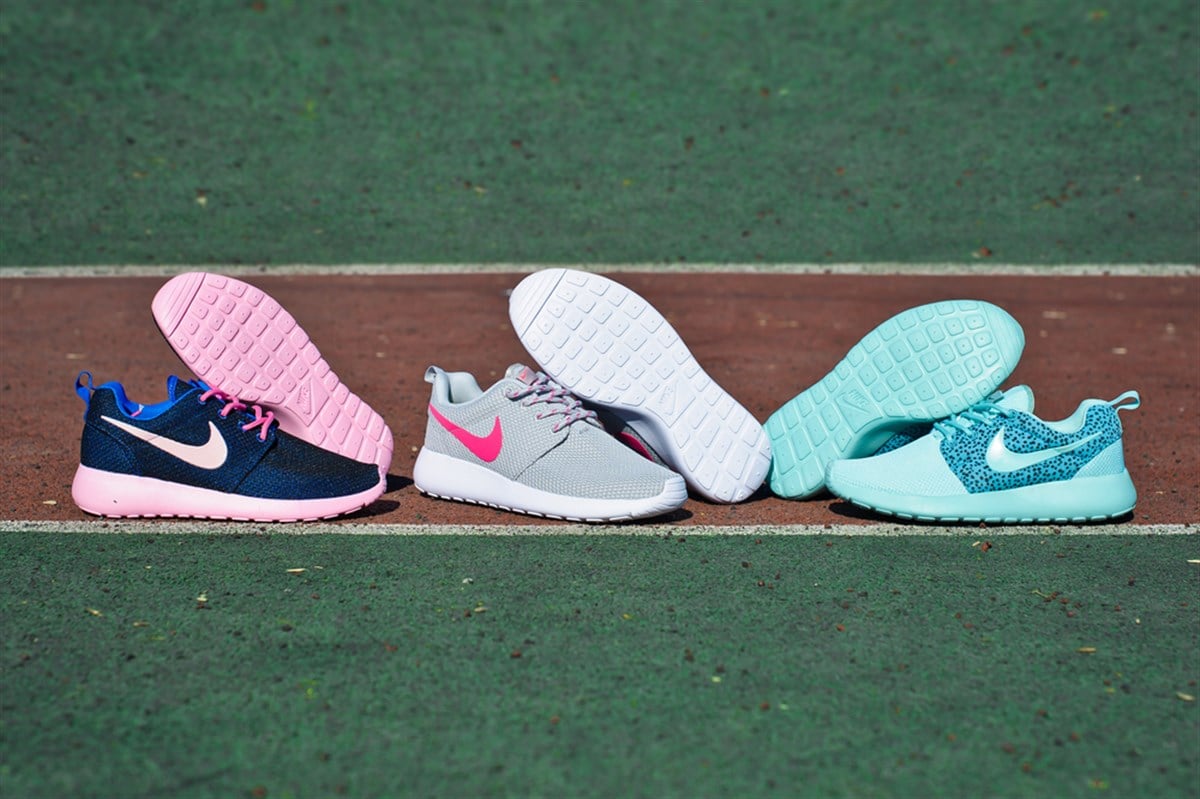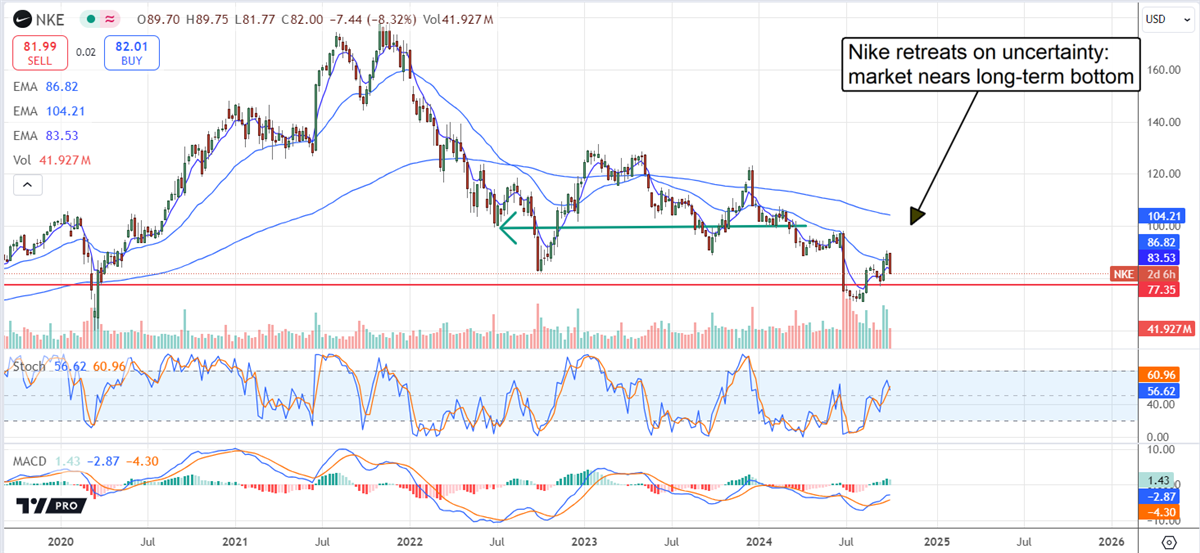
Nike (NYSE: NKE) shares fell after the Q1 report, which opened an opportunity for investors. The fall is due to numerous factors, including weaker-than-expected results, revoked guidance, and a CEO transition that is ultimately expected to turn the company around. The takeaway is that Nike faces headwinds and has a long road to recovery, but market support remains firm, and recovery is expected. The question is if now is the right time to buy or if the stock will make a deeper correction before the rebound begins.
The analysts are trimming targets but have yet to make any downgrades. The 19 MarketBeat tracks have the stock pegged at a Moderate Buy and trading near a floor in the low $70s. With this dynamic in play, the market will likely bottom soon and begin to rebuild the base. The critical drivers for the action going forward will be a recovery in wholesales and product innovation, the primary reasons for the company's weakness today. Nike’s leaning into direct-to-consumer sales eroded wholesaler support, exacerbating market share losses related to innovation.
Nike did not make any significant product innovations for years until 2024, losing market share to start-ups like On Holdings (NYSE: ONON) and legacy shoemakers like adidas (OTCMKTS: ADDDF) and Deckers Outdoors (NYSE: DECK). On Holdings is growing at an industry-leading double-digit pace while Nike flounders in contraction. Even so, the new Nike pipeline depends on updates to existing Air technology, athlete partnerships to drive product changes, and streamlined production, which may not yield results quickly. The best estimates are for the changes to take effect in early 2026, more than eighteen months away.
Nike Had a Tough Quarter, But Not a Bad One
Nike had a tough time in Q1, but the business remains profitable, producing positive cash flow sufficient to sustain balance sheet quality and capital returns. The company reported $11.6 billion in net revenue, down 10.4% compared to last year, falling short of the consensus estimates but beating the bottom line. Revenue was impacted by weakness in Nike and Converse brands, DTC, and wholesales, with a contraction in the core footwear and apparel categories. Equipment is the single area of strength, up 34%, aiding bottom-line results.
The margin news is also mixed, with gross margin and selling, general, and administrative expenses (SG&A) improving but offset by increased sales and tax expenses. The takeaway is that net income is down 28% year over year, and the diluted GAAP EPS is 26% but well above forecasts, reflecting operational improvements and quality. The net result is $0.70 in GAAP EPS, which is more than 3500 basis points above consensus, with margin quality expected to continue in the coming quarters.
The details that spooked the market are the retracted full-year guidance and delayed investor day conference, which brings an element of uncertainty to the outlook with the CEO change due soon. As it is, the company expects Q2 revenue to be down 8% to 10%, putting the H1 outlook in alignment with the prior forecast.
No Red Flags on Nike’s Strong Balance Sheet: Capital Returns Can Run
As troubled as Nike is, the company produced a positive cash flow quarter and improved its balance sheet while sustaining dividends and share repurchases. The share repurchases topped $1 billion for the quarter, helping to reduce the average count by 2.7%, and will likely continue as the fiscal year progresses.
The dividend is also safe at roughly 50% of the quarterly earnings. However, the pace of annual increase will likely slow from double-digits into the low single-digits until growth is reinvigorated. Regarding the balance sheet, cash and assets are up compared to last year, and debt and equity are relatively flat, leaving the company in a net-cash position relative to its debt, with leverage low at 0.6x equity. Nike has work to do but is in a solid financial position, capable of making the necessary moves to achieve its goal.















